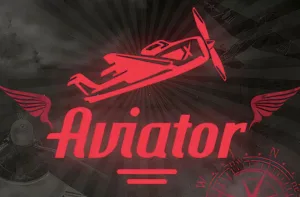The Psychology Behind Aviator Game App Download and Its Rapid Growth
The Bombastic Emergence of Game Culture in the Field of Aviators
The crash genre is exploding these days, and such a betting game attracts more and more gamers who want to be engaged in the rapid flow of activities. Nevertheless, one wins the prize in pure buzz: aviator game. That is why your friends can not stop talking about watching that tiny red plane climb up to the heavens… or crash to the ground in a moment. Aviator is not only a fashionable film because it has suspense, simplicity, and naked thrills that are addictive qualities. But what is it, really, that is so damn hard to leave, that is so distinct, that is so jones-town about Aviator? So why not dissect the nuts and bolts of its structure, and what actually goes on in your brain when the propeller begins to go round and round.

A New Kind of Simplicity: Simplicity Aviator Game Play Mechanics
The popularity of Crash games was built on the basis of easy to learn and hard to master. Aviator turbo charges this formula. Its main mechanic? You put your money down, see the multiplier increase and the plane goes into a nose dive and you collect. Once you close your eyes and open again- you lose your bet. It is fantastically easy. It has no maze of regulations. No long rallies. You do it, you win (or something) or you lose; repeat. The average rounds of games take more than 15 seconds.
However, do not think that because of a clean design it is nothing deep. The little crevasses make sure you are tense: changing crash positions, moving multipliers, and split bets. It has even a social aspect about it – real-time chat makes you see other players either celebrate or swear at their luck immediately next to you. It sets an element of friendship, and unlimited playability and hardly surpassed by traditional slot or card games.
Fear Of Missing Out and Social Proof
Did you ever see those leaderboards blazing away at mega winners? Or the chat that progresses with the speed of lightning with emojis and crazy reactions? That is not without reason. Aviator is designed to jack up the social proof. You are not alone here; you are a humming insects nest. Evidence provided by behavioral psychology indicates that individuals are strongly guided by what the others are doing, particularly in an uncertain situation. Aviator plays to this. Victories are televised in a spectacular way. You see a person grab a 50x payout and suddenly the phrase of going one more round does not seem to be too ridiculous.
The hope that perhaps—just perhaps—your next jump is going to be like theirs is a strong one. The dreaded fear of missing out (or – as it is also known, FOMO) does its work: your finger is on the bet button, and everything is prepared to be launched.

Dopamine Rollercoaster: Why Your Brain Loves Aviator
Open one of your books on neuroscience, and you will realize that games such as Aviator embrace the brain reward pathways to the much extent. As the plane inches up, potentially making your win (as well) inch up, your brain begins to drip-feed you a certain chemical (messenger) called dopamine, which communicates anticipation and pleasure. It is the same combination that runs slot machines, TikTok swipes, social media likes and is all in the same tap.
When researchers at Stanford tested intermittent rewards (unpredictable wins, such as in Aviator), they turned out to be much more engaging than regular and predictable payouts. Your body turns to a roller-coaster combination of some sense of anticipation, fear and euphoria. The crash? Pure heartbreak. It turns out though next time—next round—you will cash out just in time. It is an emotional cycle whereby breaking it is so difficult.
Escape of the Illusion of Control
Following a traditional psychological trap, the premise of illusion of control, Aviator is constructed. You believe you are a gamer, controlling the right moment of the cash out, accompanying that airplane to new skies. Nevertheless, the code is unfeeling, fortuitous, and completely insensitive to your guesses. Logically, you can theorize that the result will be obtained through an algorithm, but subconsciously, your brain will say: “This time you will still win, the marshal will go over to you.”
You can spot it in arcades and casinos; you can even see it in stock trading. The momentary feeling of being able to control the randomness is catnip to us pattern-seeking minds. Aviator knows that better than its competitors.
What makes Aviator Poker Better Than Other Crash Games
The graphics of Aviator are smooth without striking. The pacing? Quick as lightning; not muddy. Sometimes competing crash games make attempts to append bells and whistles—multi-prized jackpots, mini-games or labyrinth-like bonuses. Excessive garnishing though spoils the dish. Aviator is keen on what sells: plain telling, instant pleasure, punching physicality on the stage that fixes you like a roll of glue.
To say nothing of the fact that transparency stands in the spotlight. Each flight is secured by provably fair algorithms—this creates trust. It is not like some mysterious hand behind the curtain is conning you. Other games? Doesn’t always do that right out front.

Moreover, the dual bet opportunity does not only enable your hedging but is oozing with psychological mystery. You may be a conservative bettor on one hand and a courageous bettor on the other in the same round. This two-layer process opens up the possibility to go all-in-or-nothing-lost, and each system is more interesting than the last.
Social and Contests Increase Retention
Aviator also performs well in the retention of players since every win is worth a cry, whether large or small. You are not alone. Users can comment, cheer and even shame anyone. The promise of recognition is offered by use of leaderboards. We people are story tellers; each round composes a small tale of danger, gain and remorse. The more you recognize names, the more you get committed to staying. Juxtapose this against faceless, lonely experiences in other places and it is a battleground no-contest.
